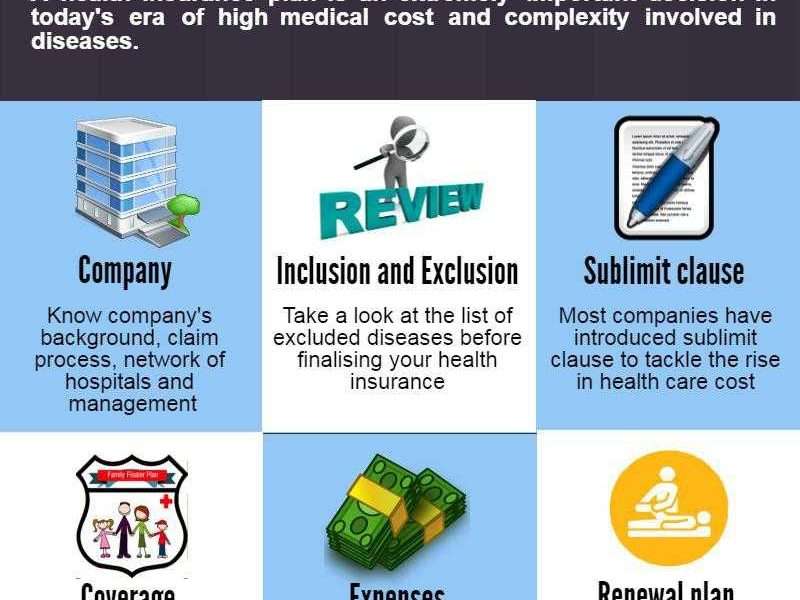Choosing the right health insurance plan can feel overwhelming, a bit like navigating a complex maze filled with jargon and confusing options. It’s a decision that profoundly impacts your financial well-being and access to necessary healthcare. Understanding the key factors and considering your individual needs are essential to making an informed choice. This guide will provide you with practical tips to select the right health insurance plan, ensuring you get the coverage you need without breaking the bank. Finding the perfect plan requires careful consideration and research.
Understanding Your Healthcare Needs
Before diving into the specifics of different health insurance plans, it’s crucial to understand your personal healthcare needs. This involves analyzing your medical history, current health status, and anticipated healthcare usage.
- Assess your medical history: Consider any chronic conditions, ongoing treatments, or regular medications you require.
- Estimate your healthcare usage: Think about how often you typically visit the doctor, specialists, or emergency room.
- Consider your family’s needs: If you’re covering your family, factor in their medical histories and potential healthcare needs as well.
Exploring Different Types of Health Insurance Plans
Once you have a clear understanding of your healthcare needs, you can start exploring the different types of health insurance plans available; Each type has its own set of pros and cons, so it’s important to weigh them carefully.
Common Types of Plans:
- Health Maintenance Organization (HMO): Typically lower premiums but require you to choose a primary care physician (PCP) who coordinates your care. Referrals are usually needed to see specialists.
- Preferred Provider Organization (PPO): More flexibility to see specialists without referrals, but generally higher premiums.
- Exclusive Provider Organization (EPO): Similar to HMOs, but you’re typically not covered for out-of-network care, except in emergencies.
- High-Deductible Health Plan (HDHP): Lower premiums but higher deductibles. Often paired with a Health Savings Account (HSA).
Key Factors to Consider
Beyond the type of plan, several other factors should influence your decision. These include premiums, deductibles, co-pays, and the provider network. Think about your budget and your risk tolerance when evaluating these elements. It’s a balancing act between cost and coverage.
Comparing these different aspects of various plans can be challenging. A helpful approach is to create a comparative table, highlighting the key differences.
Comparing Plans: A Sample Table
| Plan Feature | Plan A (HMO) | Plan B (PPO) | Plan C (HDHP) |
|---|---|---|---|
| Monthly Premium | $300 | $500 | $200 |
| Deductible | $500 | $100 | $5000 |
| Co-pay (Doctor Visit) | $20 | $30 | $0 (after deductible) |
| Out-of-network Coverage | Limited | Yes | Limited |
Final Thoughts and Making Your Decision
Selecting a health insurance plan is a personal decision that requires careful consideration of your individual needs and circumstances. Don’t hesitate to seek professional advice from a health insurance broker or advisor to help you navigate the complexities of the insurance market. Remember to always read the fine print and understand the terms and conditions of your policy before enrolling. When thinking about your future healthcare needs, these tips to select the right health insurance plan will help you feel confident that you have made the best possible choice for you and your family.
Here is the continuing text in a creative style, incorporating HTML tags and avoiding repetition:
The quest for the perfect health insurance plan isn’t just about crunching numbers and comparing deductibles. It’s about imagining your future self – the version that might need unexpected medical attention, the one striving for optimal wellness, or perhaps the one joyfully welcoming a new member into the family. Think of your health insurance as a shield, forged in the fires of due diligence, ready to deflect the financial arrows of unforeseen medical expenses.
Beyond the Basics: Unearthing Hidden Gems
Most guides stop at the standard plan types, but the world of health insurance is teeming with niche options and often-overlooked benefits. Dare to venture beyond the well-trodden path and discover what hidden gems might lie in wait.
Exploring Lesser-Known Coverage Options:
- Telemedicine Services: Many plans now offer virtual doctor visits, allowing you to consult with a physician from the comfort of your own home – a boon for busy schedules or those living in remote areas. Think of it as a doctor in your pocket!
- Wellness Programs: Some insurers incentivize healthy behaviors by offering discounts, rewards, or even reimbursements for gym memberships, nutrition counseling, or smoking cessation programs. It’s like getting paid to be healthy!
- Alternative Therapy Coverage: Increasingly, plans are incorporating coverage for acupuncture, chiropractic care, and other alternative therapies, recognizing the value of holistic wellness.
- Vision and Dental Add-ons: Bundling these services with your main health plan can often be more cost-effective than purchasing them separately.
The Art of Negotiation: Unlocking Potential Savings
Did you know that the price of health insurance isn’t always set in stone? In some cases, you can negotiate your premiums or deductibles, especially if you’re self-employed or purchasing coverage through a private exchange.
Strategies for Negotiation:
- Shop Around Aggressively: Obtain quotes from multiple insurers and let them know you’re comparing offers. Competition can drive down prices.
- Highlight Your Healthy Lifestyle: If you’re a non-smoker, maintain a healthy weight, and have no chronic conditions, emphasize these factors to demonstrate your lower risk profile.
- Consider a Higher Deductible: If you’re generally healthy and can afford to pay a higher deductible in the event of an emergency, you can often secure a lower premium.
- Explore Group Coverage Options: Even if you’re not employed by a large company, you may be able to join a professional association or trade group that offers group health insurance rates.
Future-Proofing Your Coverage: Anticipating Life’s Twists
Life is a series of unexpected turns, and your health insurance plan should be flexible enough to adapt to these changes. Consider how your needs might evolve in the coming years.
Before you commit to a plan, ask yourself: What if I change jobs? What if I decide to start a family? What if my health needs change unexpectedly? Choosing a plan with portability, comprehensive coverage, and the option to upgrade or downgrade as needed can provide invaluable peace of mind. The journey to finding the right health insurance is a marathon, not a sprint, so embrace the process, do your research, and choose wisely – your future self will thank you for it.
Here’s a continuation of the health insurance article, focusing on creative and unusual aspects, while maintaining the HTML structure and avoiding repetition:
Delving into the Quantum Realm of Health Insurance
Forget everything you think you know about health insurance. We’re venturing into uncharted territory, where the line between coverage and care blurs, and the very definition of “health” is challenged. Imagine a plan that anticipates your needs before you even realize them, a proactive guardian angel in the digital ether.
The Rise of Predictive Health Insurance
- AI-Powered Risk Assessment: Instead of relying solely on demographics and medical history, insurers are increasingly using artificial intelligence to analyze vast datasets – from your wearable device data to your social media activity – to predict potential health risks. Creepy? Maybe. Effective? Potentially.
- Personalized Preventative Programs: Based on these AI-driven insights, you might receive tailored recommendations for diet, exercise, or even stress management techniques, all designed to avert future health issues. Think of it as a hyper-personalized wellness coach, constantly monitoring and optimizing your well-being.
- Gamified Health Challenges: Imagine earning points for achieving fitness goals, completing wellness quizzes, or attending virtual workshops. These points could then be redeemed for discounts on your premiums, gift cards, or even charitable donations. Make health insurance fun? The future is now.
Beyond Reimbursement: Health Insurance as a Concierge Service
What if your health insurance plan wasn’t just about paying for medical bills, but about providing a seamless and personalized healthcare experience? Envision a world where navigating the complex healthcare system is as easy as ordering a latte on your phone.
The Concierge Health Insurance Model:
- Dedicated Care Coordinators: Forget endless phone calls and confusing paperwork. A dedicated care coordinator acts as your personal guide, helping you schedule appointments, navigate insurance claims, and find the best specialists for your needs.
- Virtual Second Opinions: Unsure about a diagnosis or treatment plan? Get a virtual second opinion from a leading expert, all from the comfort of your own home.
- Mobile Health Monitoring: Seamlessly track your vital signs, medication adherence, and other health metrics using a connected device, and share this data with your healthcare team for proactive monitoring.
- On-Demand Doctor House Calls: In certain areas, insurers are experimenting with on-demand doctor house calls, bringing the convenience of healthcare directly to your doorstep.
Ethical Considerations: Navigating the New Landscape
As health insurance becomes increasingly personalized and data-driven, it’s crucial to address the ethical implications. How do we protect patient privacy? How do we ensure fairness and prevent discrimination? These are complex questions that require careful consideration.
The potential benefits of predictive and personalized health insurance are undeniable, but so are the risks. Open dialogue, transparent data policies, and robust regulatory frameworks are essential to ensure that these innovative technologies are used responsibly and ethically, benefiting all members. As we stand at the precipice of this new era, it’s imperative that we shape the future of health insurance with both innovation and integrity. The best health insurance isn’t just about covering costs; it’s about empowering individuals to live healthier, happier lives. It’s about understanding where the future is headed and preparing to select the right health insurance plan for the road ahead.


